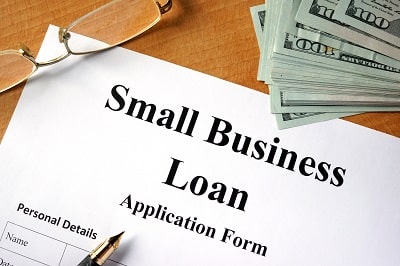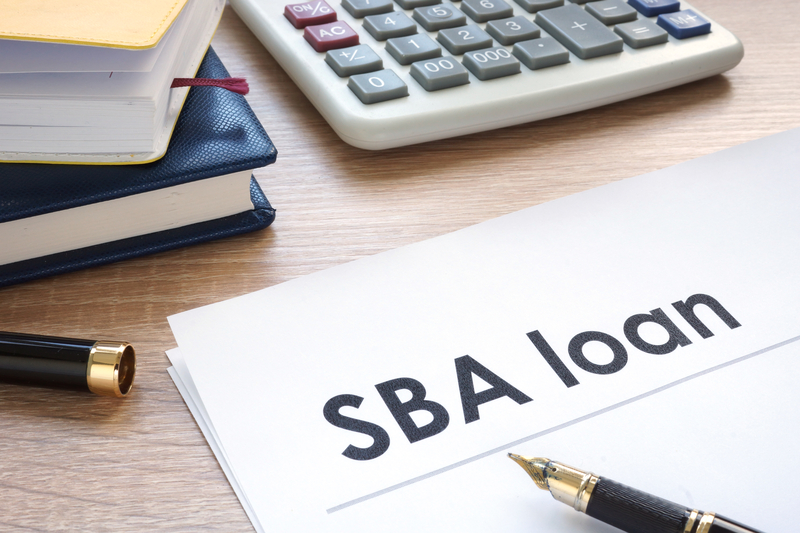SBA loans can be used for financing a business acquisition of up to $5 million, as well as purchasing commercial real estate, machinery/equipment, refinancing debt, or obtaining working capital for a business.
Obtaining an SBA loan may seem daunting, even overwhelming, but in fact SBA loans can be obtained relatively easily if you are well prepared and work with an SBA PLP (Preferred Lender Program) Lender. The process and paperwork are generally perceived to be extensive, however in reality it isn’t more difficult than commercial bank financing. Commercial loans are generally not available for small and midsized business acquisitions and SBA financing is often the only option available.
The SBA loan type used to purchase an ongoing business is referred to as a 7(a) loan. SBA 7a loans are 10-year terms and most are variable rate, with some lenders offering fixed rate loans. Most SBA loans are tied to the Prime Rate and the maximum rate allowed by the SBA is Prime Rate + 3%. The SBA lending market is presently very competitive and few lenders are charging the maximum rate of Prime + 3%, with most offering interest rates of Prime + 2.5 to Prime +2.75% variable rate loans.
Why Use an SBA PLP Lender?
Many banks offer SBA financing, but not all are SBA PLP (Preferred Lender Program) lenders. PLP lenders can do their own underwriting and do not need to submit their loans for SBA approval. Banks that are not SBA PLP lenders must submit all of their loans to the SBA General Processing (aka GP) for approval which often takes 30 to 60 additional days after the bank has finished their underwriting.
Picking the Right SBA Lender for Buying a Business
There are hundreds of SBA PLP lenders, but which one is right for you?
Pacific Business Sales works with select SBA PLP lenders with offices in California. We prefer regional banks over large nationwide banks because they are easier to work with and more responsive. We also work with a select few nationwide lenders that have exceptional service and flexible underwriting. We recommend starting with SBA PLP lenders with a local BDO (Business Development Officer) specializing in the industries you are interested in. Contact Us for our recommended SBA lenders.
Before contacting SBA lenders, it is important to have the necessary paperwork readily on hand. Below we have outlined the initial documentation an SBA lender will want to consider you for SBA financing.
Getting Approved for SBA 7a Business Acquisition Financing
Credit, Collateral, & Experience Requirements for Obtaining an SBA Loan to Buy a Business
Approval for SBA 7a business acquisition loans isn’t just a matter of good credit, lenders also consider your business experience and collateral. A credit score above 700 is sufficient for most lenders and some will consider credit scores as low as 680 with excellent experience and collateral. Most SBA lenders will not lend to buyers with a bankruptcy in their history. Some will consider buyers with a BK over 10 years old.
Experience is key for all SBA lenders, and the experience they are looking for is experience in the type of business you are buying. If you have an Ivy League MBA and you are buying a plumbing company the underwriter and credit officer care much more about your plumbing experience than your MBA. That said, there is latitude on the experience requirement if you have related experience, even from years ago when you were perhaps working while in school or summer.
SBA policy requires lenders to take 1 to 1 collateral if is available. SBA PLP lenders have latitude on this requirement. Many are not concerned about collateral on transactions under $1 million, and most won’t take collateral on a personal residence if the equity is less than 20%. On transactions over $1 million, most SBA lenders want some collateral, however, it does not need to cover the full loan amount. How much collateral is required ultimately is up to the lender and it varies with each bank and each transaction.
Buyer’s Documents required for SBA Financing Approval
- Last 3 year’s Personal Tax Returns
- Also tax returns for any affiliate companies with 20% ownership or more
- Personal Financial Statement (provided by Lender)
- SBA 1919 Form (can be found online)
- Management Resume Form (template often provided by Lender)
- Copy of prior year W-2’s
- Copy of Purchase Agreement
- Business Plan (this comes later in the process, during underwriting)
- Budget and Projections (this also comes later in the process, during underwriting)
Seller & Business Documents required for SBA Financing Approval
- Last 3 years’ business tax returns
- Last 3 years P&Ls
- Year to Date P&L
- Balance Sheet prior year-end
- Current Balance Sheet
- A/R aging summary
Down Payment
The minimum down payment for an SBA business acquisition loan is 10% of the purchase price. The source of your down payment must be from your personal funds and the bank will look back 60 to 90 days for your source of funds.
There are expectations where you can have a direct family member “gift” you some of the down payment. The lender will want documentation in the form of a gift letter and the source of funds.
The lists above are the initial information required for pre-approval and underwriting. There is additional documentation and paperwork required along the way to closing, Our PLP lenders typically close within 75 days.
There is an SBA rule that allows a buyer down payment as low as 5% with a Seller Note for 5% on “standby” for a minimum of 24 months. The 5% down option is up to each lender, and most lenders will not consider this option, sticking with the 10% minimum down payment. Another sticking point is convincing the Seller to carry a 5% seller note with no payments for 24 months or more.
100% SBA financing can be offered by SBA lenders for “expansion” financing. For example, if you own a manufacturing company and wish to acquire a competitor, or another manufacturing company similar to yours, 100% financing may be available. Again, it is up to each lender.





